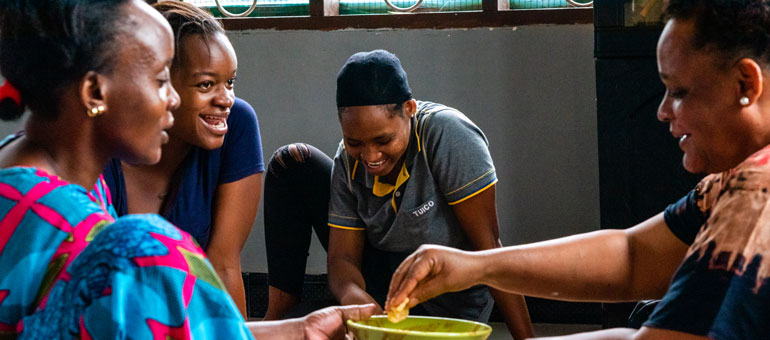G7 Development Minister’s Communique and the Chair’s Summary – Session 5: "Response to Multiple Crises on the African Continent – focusing on Food Security".
The Zero Hunger Coalition and Private Sector Pledge have received strong support from the Communiqué 'Achieving the Sustainable Development Goals in times of multiple crises' issued on 19 May 2022 by the G7 Development Ministers. Similarly, the Coalition and Pledge are encouraged by the outcomes of the Session Response to Multiple Crises on the African Continent – focusing on Food Security. Both statements address the multiple crises threatening people’s safety, well-being and prosperity across the world, while signalling the need for joint and ambitious action.
The G7 Development Ministers and partners recognize the global impact of Russia’s war in Ukraine. Combined with climate change, Covid-19 and other conflicts, Russia’s war is worsening global food security, with particularly significant effects on the African continent. Moreover, both statements note with great concern the increase of food insecurity, rising hunger and malnutrition, as well as food price inflation that affects all of us, especially the most vulnerable.
In fact, the UN Food and Agriculture Organization estimates that up to 13.1 million more people are likely to be chronically undernourished next year because of the war.
In light of this stark picture, the G7 and partners recognize the need for action to strengthen the long term resilience and sustainability of agriculture, including smallholder farmers, and agrifood systems. Also, it points out that agrifood systems transformation is fundamental to achieving global food security and nutrition. Efforts for coordinated action to achieve SDG2 are reiterated.

Both statements note with great concern the increase of food insecurity, rising hunger and malnutrition, as well as food price inflation that affects all of us, especially the most vulnerable.
We welcome the call to action and support in both statements from the G7 and development partners’ to join the Zero Hunger Coalition. In close collaboration with partners, the Coalition aims to advocate, align and add resources to end hunger, sustainably and nutritiously, through long-term development by focusing on concerted efforts built on science-based high impact actions. In its work, the Coalition and Pledge focus on high-burden countries, many of the on the African continent, based on their requests and national priorities. All stakeholders are invited to join this effort by FAO, GAIN, WFP, IFAD and others, so that together action can be undertaken to end hunger sustainably and nutritiously.
The G7 Ministers also recognize the important role of the private sector. As of this moment, USD 458 million has already been pledged by 43 companies in 48 high-burden countries as part of the Zero Hunger Private Sector Pledge. As part of this, USD 178 million of new pledges has been announced this week. The private sector is essential. Fixing hunger requires governments to act, but collaboration and action by business and civil society too.
Moving forward, bold leadership and collective vision to collaboratively end hunger is essential for reaching the goal of Zero Hunger, both in the short- and long-term is. The support from the G7 Development Ministers and development partners is a strong call to action for all of us, prompting urgency to act. Together we can advocate, align and add resources to reduce the number of people suffering from hunger and malnutrition to zero by 2030, sustainably and nutritiously.
For more information on the Zero Hunger Coalition see the blog Time to end the slow violence of chronic hunger, written by Dr. Lawrence Haddad (GAIN), Dr. Máximo Torero (FAO) and Dr. Carin Smaller (IISD).